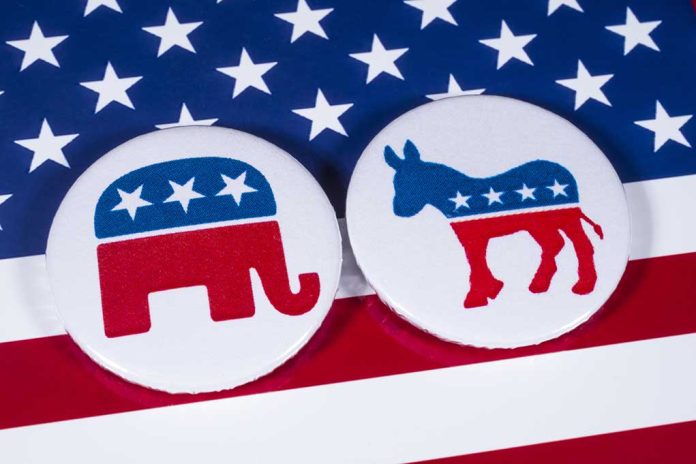
A Democratic PAC files a complaint against the Trump-Musk interview, raising election law violation concerns that could shape our democratic values.
At a Glance
- End Citizens United files FEC complaint over Trump’s interview with Elon Musk.
- The interview is claimed to be an illegal corporate contribution to Trump’s campaign.
- X, owned by Musk, used its resources to support the event, possibly breaching campaign finance law.
- The incident reflects broader concerns over the influence of influential personalities on elections.
From Complaints to Courts: The Battle Over Election Influence
A recent complaint filed by the Democratic PAC, End Citizens United, with the Federal Election Commission (FEC) has added fuel to an already contentious political fire. At the heart of the issue is a two-hour interview with former President Donald Trump hosted by tech magnate Elon Musk on the social media platform X, which Musk owns. End Citizens United, led by President Tiffany Muller, claims this event was far more than a casual discussion — it was an illegal corporate contribution to Trump’s campaign.
According to Muller, “The Donald Trump-Elon Musk campaign rally hosted on X wasn’t just an incoherent diatribe of lies marred by technical difficulties, it was a blatantly illegal corporate contribution to Donald Trump’s campaign.” The PAC argues that X, by employing its resources to host and manage the interview, effectively made a significant in-kind contribution to Trump’s campaign. This situation raises questions not just about campaign finance laws, but about the integrity of our electoral processes (Source #1).
Democratic PAC files FEC complaint over Trump-Musk interview https://t.co/LynoaQ2LjB
— The Hill (@thehill) August 14, 2024
Legal Battles and Narrow Escapes
Interestingly, this isn’t the first time Trump has faced such allegations. In March 2022, AB PAC filed an administrative complaint against Trump, alleging violations of the Federal Election Campaign Act (FECA). Trump was accused of making expenditures for a 2024 presidential bid without proper disclosure and accepting excessive contributions from his leadership PAC and joint fundraising committee. However, the U.S. District Court for the District of Columbia granted the FEC’s partial motion to dismiss these claims, stating AB PAC did not suffer a competitive or informational injury sufficient to support standing.
This episode brings up the broader conversation on media bias. Critics argue that such a high-profile, technically facilitated event between Trump and Musk on a widely used social media platform does tilt the electoral playing field.
Yet, one must also consider the ongoing suppression of conservative viewpoints by mainstream media outlets. It’s a balanced debate, challenging our notions of free speech and fairness in media exposure.
The juxtaposition of the Democratic PAC’s actions with historical media suppressions offers a stark perspective on bias. When conservative views are sidelined, they create an echo chamber that resonates only one political frequency. The media’s role should be to inform, not to transform public opinion through selective coverage. Ultimately, it’s the public who suffers when the balance of information is disturbed.
Future Implications
In light of the accusations, Electoral integrity remains a cornerstone of democracy that requires relentless guarding. Whether it’s the technical perfection of a Trump interview on X or the media’s subtle marginalization of conservative voices, every action has a reaction that shapes the nation’s democratic fabric. Musk’s involvement has turned X into a political hotspot, but let’s not overlook how mainstream media also angles stories to fit its narrative.
“We have a lot of bad things coming up,” Trump warned, while contrastingly, Vice President Kamala Harris aims to paint a future filled with positivity, hoping to sway Latino voters and other crucial demographics in battleground states.
As the 2024 election draws closer, this ongoing battle underscores how critical it is for each American to stay informed, discerning, and engaged. Ensuring that voices are heard rather than suppressed ought to be the ultimate goal of any democratic society.

















